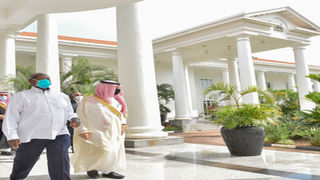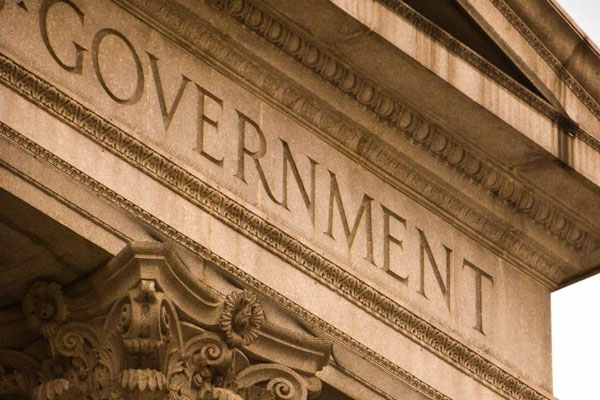
People & Power
Prime
An Executive out of touch with reality, or a case for good economics?
What you need to know:
- Following his recent advice to Ugandans who cannot afford bread to feed on cassava, some citizens have come out to mock the President for allegedly being out of touch with reality amid soaring commodity prices.
- His supporters, however, say talk of subsidies might be good politics, but certainly not good economics, Isaac Mufumba writes.
On May 1, presidents Yoweri Museveni of Uganda and Uhuru Kenyatta of Kenya presided over Labour Day celebrations in their respective countries. Their speeches came with contrasting fortunes for the citizenry.
While President Kenyatta announced a 12 percent increase in the minimum wage in order to cushion the workers there from the high cost of living, Mr Museveni used the occasion to recommend consumption of cheaper food varieties. Cassava, he said, could be consumed in the place of bread.
“If there is no bread eat muwogo (cassava). Ugandans really confuse themselves. If you’re complaining that there’s no bread or wheat, please eat muwogo. I don’t eat bread myself,” Mr Museveni said.
Mr Museveni had already told members of the parliamentary caucus of the ruling National Resistance Movement (NRM) at Kololo Independence Grounds on April 26 that his government would not be lifting a finger to check the spiralling commodity prices. That was not sweet music to most Ugandans.
Coming against a chorus of demands for government intervention from, among others, Archbishop Stephen Kaziimba of the Anglican Church, Mr Museveni’s remarks did not sound like those of a person who had in his Easter message claimed to be aware that the spiralling prices “are disturbing our people”.
Prof Paul Wangoola, a former member of the National Consultative Council, which served as Uganda’s Parliament under presidents Yusuf Lule and Godfrey Binaisa, argues that the President has over time become so detached from the ordinary Ugandans to appreciate their plight.
“The President lives in a buffet economy. He picks whatever he wants and in the quantities and amounts that he wishes to have. It becomes very difficult for a person who has been living such a life to understand what goes on in the lives of the ordinary people,” Prof Wangoola says, adding that the Executive is insulated by law – the Emoluments and Benefits of the President, Vice President and Prime Minister Act of 2010 – against what most Ugandans are suffering.
The law
Under the said Act, the President is entitled to an education allowance to cover the tuition fees for four biologically or legally adopted children of not more than 25 years up to university level. The state can pay for undergraduate studies for any such children where their courses are not available in universities in Uganda.
ALSO READ: Open letter to President Museveni
The President is also entitled to first class air travel or a presidential jet for self and spouse; one trip per year for each of the children; one trip for medical and educational purposes; a salary of Shs3.6m, 40 percent of the salary as gratuity payable after every 12 months in office or as the President may require and; a fully facilitated State House. That means consumer items like soap, sugar, salt and food items.
The law also provides for appropriate transport in the form of chauffeured cars with a capacity ranging between 4,000 and 5,000 ccs; security and; medical treatment for self and family. The transport bit also includes police lead cars, official limousines and escort vehicles.
To remove or not remove taxes?
But the president of the Opposition Forum for Democratic Change (FDC) party, Mr Patrick Amuriat Oboi, says the President’s inaction is on account of a bigger problem.
“Even if he doesn’t feel the pinch because everything is bought for him, he knows what is going on in the country. The only problem we have is of having somebody who is at the top there who doesn’t feel for the people,” he argues.
Mr Amuriat argues that much as the high commodity prices have been caused by mostly exogenous factors, government has not done enough in terms of tweaking policies as a way of bringing the prices down.
“We have already proposed that the tax on fuel should be removed. It is better for people to be able to survive for one more day and for us not to collect that much revenue than for people to die and there is no revenue that will be collected even for the future,” Mr Amuriat says.
However, Mr Julius Mukunda, the executive director of Civil Society Budget Advocacy Group (CSBAG), says removal of taxes is not tenable.
“The rise in commodity prices has been triggered by external shocks and is supply-side related. The disruptions of the global supply chains due to the Covid-19 pandemic has led to higher transport costs, shortage of shipping containers and raw materials and higher fuel prices,” he argues.

Downtown Kampala at the peak of the second lockdown last year. Some experts have blamed the disruptions of the global supply chains to the Covid-19 pandemic. PHOTO/ FILE
Mr Mukunda says besides the fact that there are no guarantees that removal of taxes will bring prices down, such a move will complicate matters for a government that is already finding it hard to service its debts.
“Reducing taxes will put more pressure on government to service debt and also fail to meet other expenditure pressures such as wages and others. Already URA is having challenges in meeting its targets.
Reducing taxes is not a guarantee that prices will reduce, especially since our inflation is imported,” Mr Mukunda argues.
Mr Amuriat, however, says if government cannot remove taxes on fuel and other essential commodities, it could address other factors that have caused the prices to spiral.
“They should, at least, talk to the manufacturers and find ways of reducing the cost of production. If it is electricity, we can have the cost reduced. If it is raw materials, we find out why their cost is high. This is an area that should have been explored, but there has been no effort,” Mr Amuriat says.
Subsidies talk
The idea that government waives taxes on fuel gained traction after Kenya and Rwanda moved in that direction, but Mr Museveni told NRM MPs that talk of subsides was “fake economics”.
ALSO READ: Economy: World Bank warns of bleak future
That must be a new way of thinking. Does not the agreement that government signed with Uganda Vinci Coffee Company talk of providing the firm with electricity at a subsidised price of US5 cents per unit?
The chairperson of NRM Parliamentary Caucus, Mr Alex Brandon Kintu, says the President’s remarks were not properly contextualised.
He says giving Vinci Coffee electricity at such a price is in line with government policy which seeks to make electricity for the manufacturing sector cheaper and in turn make the sector more competitive. It is also in line with a policy, which seeks to promote import replacement and export promotion strategies.
Mr Fred Muhumuza, a development-oriented policy researcher who also teaches Economics at Makerere University, agrees with the President. He says subsidies are not an option.
“You cannot give subsidies because they are not sustainable. You do not want to operate something that cannot be sustained and government does not have the money anyway,” Muhumuza says.
Mr Kintu, who is the Kagoma County North MP, says people are not looking at the long-term impact of subsidies on the economy.
“Kenya and Rwanda waived taxes on fuel, but what has been the effect? You can only make a case for a waiver if you do not know what is causing the high fuel prices. If you waive the tax and the prices still doubles as it is expected to do because of the exogenous factors that are causing the problem, you have crippled the country completely because you also will not have the revenue to make other strategic interventions that might be necessary. So Mr Museveni is right. This talk of subsidies might be good politics, but certainly not good economics,” Mr Kintu says.
READ RELATED: President must seek urgent consensus on the economy
Mr Mukunda weighs, in saying Uganda does not have the resources to support subsidies.
“Uganda does not have sufficient revenue to sustain any form of subsidy. Bank of Uganda’s Monetary Policy report for April 2022 indicates that we built up reserve assets to a tune of $642 million which is equivalent to four months of import cover. Therefore, government using subsidies as an intervention will negatively affect the country’s foreign reserves,” Mr Mukunda says.
Mr Adam Mugume, the director for research at Bank of Uganda, says subsidies would cause distortions in the economy.
“A subsidy is a negative tax, which means government would be encouraging continued consumption of the subsidised goods. Secondly, for government to give a subsidy, it either has to cut expenditure from somewhere or borrow more when interest rates are rising, which would adversely impact public debt,” he adds.
Action or inaction?
Mr Muhumuza says government has handled the situation well. He says there are no immediate solutions to what he described as structural issues in the market system, adding that the best thing to do was to let markets work with minimum intervention, which government has done.
“Since this is imported inflation, the only thing that government can do and has done is to stabilise the exchange rate to mitigate the pass through effect because if the dollar rises then the pass through effect will be higher. The dollar is stable. That is all they can do,” Mr Muhumuza says.
Mr Mukunda agrees that there are no immediate solutions. He says government should be considering strategic investments in the creation of food reserves and expanding and stocking the national oil reserves.
Alternatively, Mr Mugume says, government could intervene by giving handouts to vulnerable sections of the citizenry.
“Government can offer support to most vulnerable by giving financial support, as it did during Covid, provided it doesn’t harm measures to limit the growth of public debt,” Mr Mugume says.
Mr Amuriat, however, insists that government has not acted, which he says is a demonstrable sign that NRM no longer has what it takes to drive Uganda forward.
“Mr Museveni has moved a vote of no confidence in himself and his government. I think that the most decent thing for him to do is say that he has failed to run this country, then Ugandans can decide even within just one year of his term to do something different to cause change in this country,” he says, an argument that Mr Kintu is quick to dismiss.
“That is not a sign of failure. Mr Museveni has always delivered when it matters most. His track record speaks for itself. He is not a reactionary. If he has promised to make appropriate interventions to contain the high cost of commodities, he certainly will,” Mr Kintu says.




